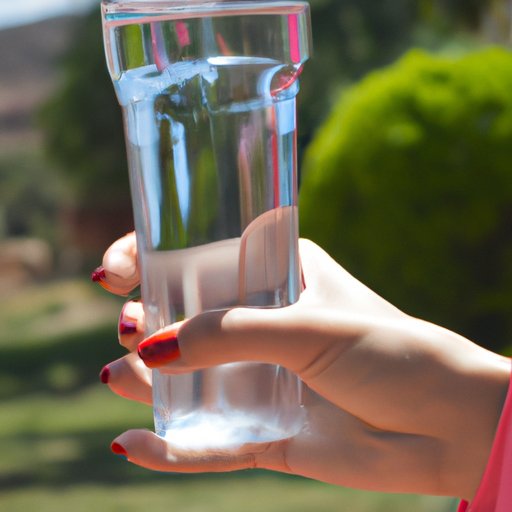Introduction
Dehydration is a condition in which your body does not have enough fluids to function properly. It can occur when you do not drink enough fluids or when you lose too much fluid due to sweating, vomiting, diarrhea, or other activities. Dehydration can be mild, moderate, or severe. Mild dehydration can cause fatigue, headache, and dizziness. Moderate dehydration can cause confusion, decreased urination, and increased heart rate. Severe dehydration is a medical emergency and can lead to organ failure and death if not treated immediately.
How to Avoid Dehydration
Staying hydrated is essential for your health and well-being. Here are some tips on how to stay hydrated and avoid dehydration.
Drink Plenty of Water Throughout the Day
It is important to drink plenty of water throughout the day to stay hydrated. How much water should you drink? The Institute of Medicine recommends that men consume about 3 liters (13 cups) of total beverages per day and women consume about 2.2 liters (9 cups) of total beverages per day. Staying hydrated has many benefits including improved digestion, better skin health, improved mental clarity, and more energy.
Eat Foods with High Water Content
In addition to drinking plenty of water, you can also increase your water intake by eating foods with high water content. Examples of high water content foods include fruits like watermelon, strawberries, oranges, and grapefruit; vegetables like cucumbers, tomatoes, celery, and spinach; and yogurt. Eating these foods will not only help you stay hydrated but they are also packed with essential vitamins, minerals, and fiber that your body needs.
Limit or Avoid Caffeine and Alcohol Consumption
Caffeine and alcohol are diuretics, meaning they can cause you to urinate more often and can lead to dehydration. It is recommended to limit or avoid caffeine and alcohol consumption to prevent dehydration. Limiting or avoiding caffeine and alcohol can also provide many health benefits such as improved sleep quality, improved mental clarity, and improved cardiovascular health.
Carry a Reusable Water Bottle with You
Carrying a reusable water bottle with you is a great way to make sure you are getting enough water throughout the day. There are many benefits of using a reusable water bottle such as being eco-friendly and reducing plastic waste. Additionally, having a water bottle with you at all times makes it easier to remember to drink water throughout the day. Some tips for carrying a reusable water bottle include investing in a high-quality, leak-proof bottle; freezing the bottle overnight to keep your water cold throughout the day; and adding flavor to your water with fresh fruit or herbs.
Monitor Your Urine Color
Another way to monitor your hydration levels is to monitor the color of your urine. A healthy urine color should be pale yellow or straw-colored. If your urine is dark yellow or orange, this could be a sign of dehydration. Monitoring your urine color is a good way to make sure you are getting enough water. It is also beneficial to check your urine color after exercising or engaging in any activity that causes you to sweat.
Conclusion
Dehydration is a serious condition that can have serious consequences. To avoid dehydration, it is important to drink plenty of water throughout the day, eat foods with high water content, limit or avoid caffeine and alcohol consumption, carry a reusable water bottle, and monitor your urine color. Following these tips will help you stay hydrated and prevent dehydration.
(Note: Is this article not meeting your expectations? Do you have knowledge or insights to share? Unlock new opportunities and expand your reach by joining our authors team. Click Registration to join us and share your expertise with our readers.)
